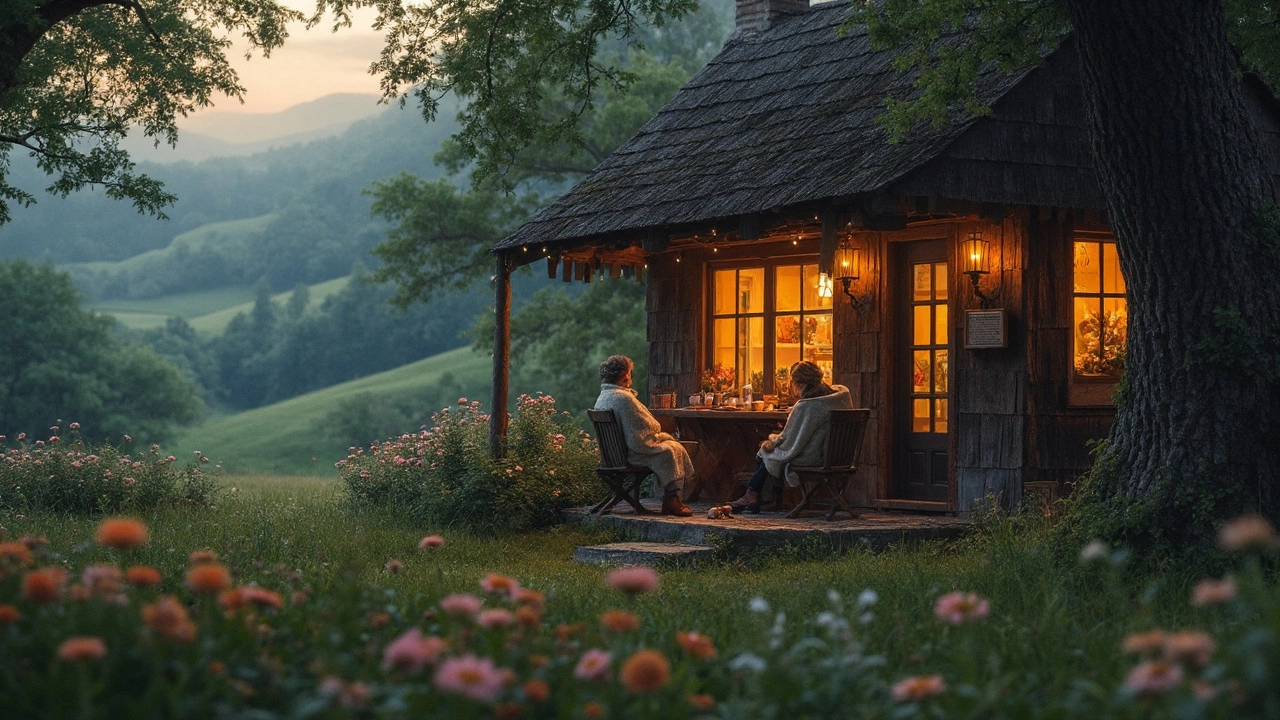Explore why cabins have an irresistible romantic pull for couples. This article breaks down the unique features of romantic cottages, highlights the role of nature in sparking connection, and shares practical tips to level up your next getaway. You'll learn how cabins help couples disconnect from routine, embrace simplicity, and build memories together. It’s not just about the fireplace—it’s about everything that makes these retreats the ultimate backdrop for romance.
Nature Travel Guides and Eco Tips for a Greener Getaway
If you love fresh air, wildlife and low‑impact adventures, you’re in the right place. This page gathers all the nature‑focused articles that help you travel responsibly without giving up comfort.
Why Choose Eco‑Friendly Stays?
Staying in self‑catering cottages or eco‑lodges means you control waste, energy use and food choices. A cottage with a solar‑powered kitchen, for example, cuts your carbon footprint compared to a big hotel that runs 24/7. You also get a local feel – you’re more likely to meet neighbours, buy from farmers markets and support the community.
Glamping is another great option. Modern glamping sites often use rainwater collection, composting toilets and renewable power. That means you can sleep under the stars while keeping the impact low. Our article on glamping explains how to spot truly green sites and avoid those that just use the word "eco" for marketing.
Practical Tips for Sustainable Adventures
1. Pack light and bring reusable gear. A sturdy water bottle, cloth bags and a set of cutlery replace single‑use plastics you’d otherwise toss in the bin.
2. Choose destinations that rank high on sustainability. Countries like Denmark and Bhutan, as well as cities such as Gothenburg, invest heavily in renewable energy and public transport.
3. Walk or bike whenever possible. Many nature spots have well‑marked trails, and cycling lets you see more of the landscape without burning fuel.
4. Respect wildlife. Keep a safe distance, stay on marked paths and never feed animals – it protects both you and the ecosystem.
5. Offset any unavoidable emissions. A small contribution to a re‑forestation project can balance the carbon from a short flight or drive.
Our guide on "most eco‑friendly places on Earth" breaks down how experts measure sustainability, so you can pick a spot that matches your values. Whether you’re heading to a renewable‑energy island in Denmark or a carbon‑negative region in Costa Rica, the guide gives you the facts you need.
When you book a cottage directly with the owner, you skip middle‑man fees and often get insider tips on local, low‑impact activities. The article on direct bookings shows how to find trustworthy owners and what questions to ask about waste management and energy sources.
Even simple choices like where to eat matter. Opt for self‑catering when possible, or choose restaurants that source ingredients locally. This supports farmers and reduces the transport emissions tied to your meals.
Finally, remember that every small step adds up. Switching off lights when you leave a room, using a towel rack instead of a dryer, and taking short showers all contribute to a greener holiday.
Explore the full list of nature‑related posts below for deeper dives into eco‑friendly travel, glamping facts, green city guides and more. Each article is written to give you clear, actionable advice so you can enjoy the outdoors while protecting it.
